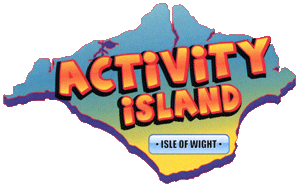
for primary and junior schools

The only working Water Mill on the Isle of Wight
Set in 35 acres of stunning rural landscape, Calbourne Water Mill contains one of the oldest working water mills in the country, dating back to the Domesday Book.
We have several choices for schools, please read the following options carefully and decide which would be most appropriate for your learners needs. We are sure that we can offer your party an exciting and interesting day out to remember.
OPTION 1
School visits include:
- An in-depth talk about the Mill (adapted to the age group).
- Demonstration of milling using the water wheel.
- An opportunity for pupils to grind wheat in quern stones.
- World War Museum, home life Victorian Museum.
- Bags of grain can be brought at £1 to hand feed our doves and peacocks that freely roam the site.
- Straw Bale building and renewable energy exhibit.
OPTION 2
- School Visit with a 15minute talk on the milling process (no demonstration)
- A 15 minute talk about the Mill (adapted to the age group).
- An opportunity for pupils to grind wheat in quern stones.
- World War Museum, home life Victorian Museum.
- Bags of grain can be brought at £1 to hand feed our doves and peacocks that freely roam the site.
- Straw Bale building and renewable energy exhibit.
OPTION 3
- School visit access to site and all museums only
- World War Museum, home life Victorian Museum.
- An opportunity for pupils to grind wheat in quern stones.
- Bags of grain can be brought at £1 to hand feed our doves and peacocks that freely roam the site.
- Straw Bale building and renewable energy exhibit.
The majority enjoy option 1 the best, however we are able to accommodate tailored requirements to suit your school.
We have an on site Café and Gift shop; we would respectfully ask that groups of children are supervised when visiting our café and gift shop.
Please contact us if your party requires Lunch or Tea or any other special arrangements, school parties may picnic in the grounds.
The Watermill
The Water Mill can provide a variety of learning experiences that will engage the children’s minds and provide an environment that can play a key role in supporting and extending development and learning. We can provide a variety of curricula opportunities for the full range of abilities to include:
Communications, language and literacy
Problem solving, numeracy and reasoning
Knowledge and understanding of the world
Physical development
Creative development
Visits can be tailor made to your requirements and cover the full range of curricula studies to enhance and extend what is available within the classroom environment. We can work with you school to provide the level of work you require including the full spectrum of AEN needs including talented and gifted.
KSI and KS2
Numeracy: use the mill and grounds to develop children’s abilities to process, represent and interpret data – e.g. weigh grain, flour, themselves; order of mass, calculate the speed of water using the mill stream and the wheel revolutions, calculate the number of eye a peacock has.
History: many opportunities to examine ‘Lives and Lifestyles’ (Past to present).
Use the various museums to place exhibits into chronological order and examine how we have progressed and help to understand the past. - War museum, Grandma’s kitchen, Granfer’s shed, Fire station and the Mill building. Study the different business uses of the mill over the last 1,000 years.
Science: wide variety of opportunities to investigate and problem solve – life processes, materials and properties and physical processes.
Different species of plants in a variety of locations to include SSI 2, meadow, ancient woodland, flood plain etc.
Energy: solar, wind and water and how they can be used.
Materials: uses of different types of wood and metals, also, oil from the café made into fuel for the tractors and mowers.
Many opportunities for problem solving activities using the mill and grounds. These can all be incorporated with the numeracy and literacy activities.
Geography: Wonderful opportunity for a locality study involving fieldwork.
Map the development of the area.
Use maps to explore the grounds with problem solving activities at each designated area.
Why the mill developed on the site and the usage over the last 1,000 years.
Comparative study – the mill with one in an ‘underdeveloped country’.
Environmental study – effect of mill on the area, land and water management.
PHSE: be aware of local effects of food grown locally and the number of miles food may travel – links with Design Tech and bread making using local wheat.
Literacy: wide range of opportunities, listening and responding, creative writing, discussion with staff, thank you letters





